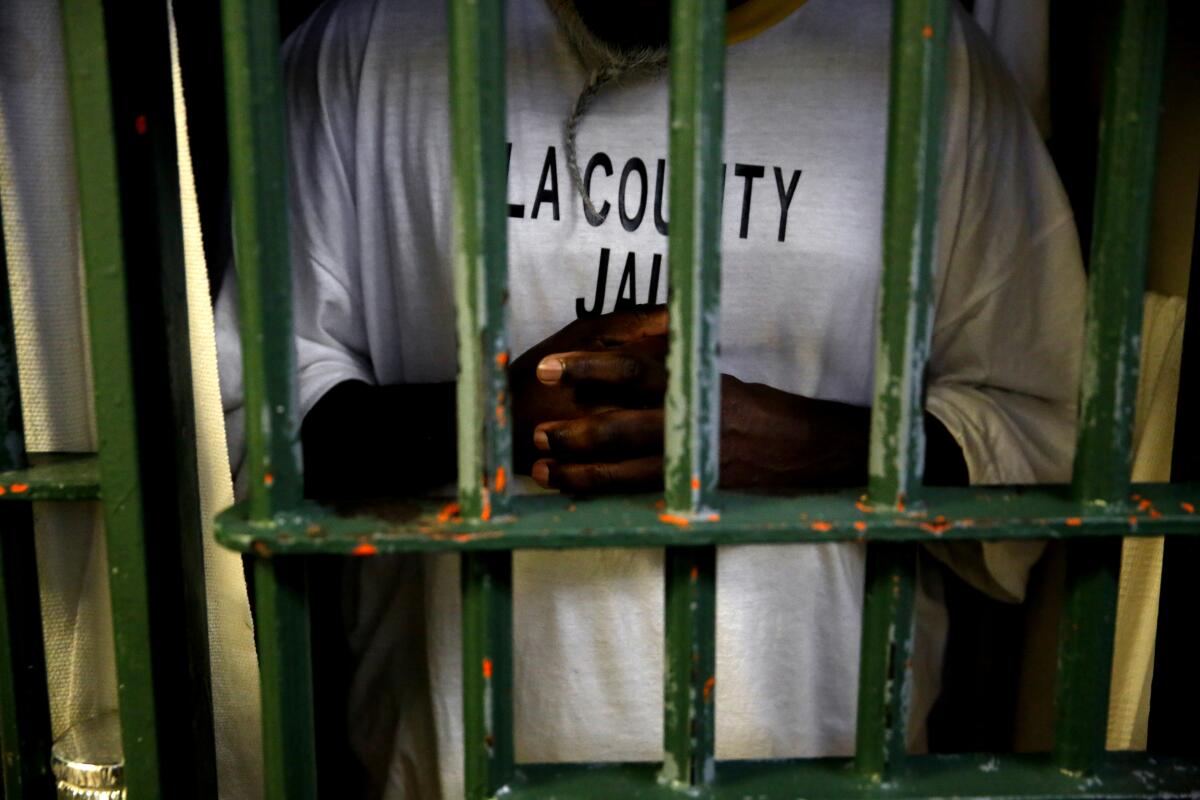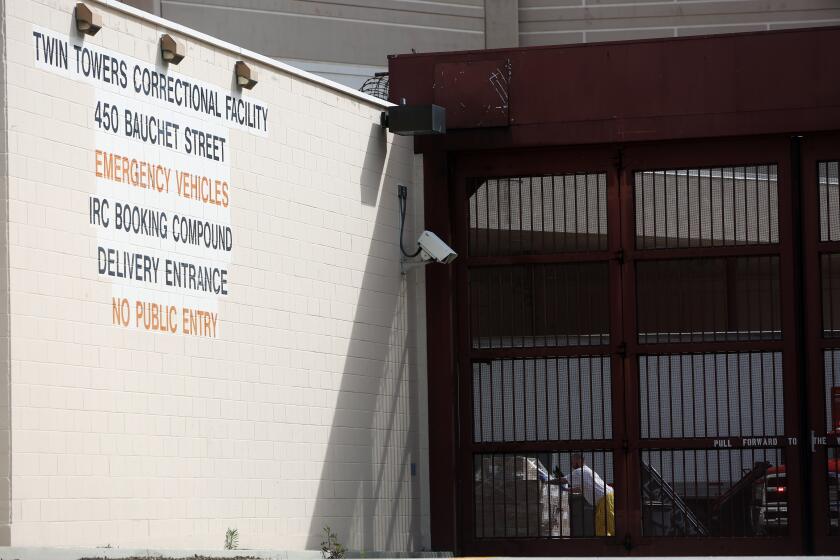Los Angeles County makes inmate phone calls free starting Dec. 1

Two years after promising to make phone calls free for people inside the countyâs seven jails, on Tuesday the Los Angeles County Board of Supervisors finally approved a contract that will get it done.
Starting Dec. 1, more than 12,000 inmates will be able to call home for free.
The five supervisors unanimously voted without discussion to amend the existing phone contract, shifting the financial burden of the calls from inmates and their families to a pot of money known as the Inmate Welfare Fund. Previously, the proceeds of the high-priced jail calls went into the Inmate Welfare Fund, which under state law is supposed to be used mainly for the benefit and education of inmates.
In recent years, that fund grew to a balance of more than $32 million as revenues â both from phone calls and inmate commissary purchases â outpaced expenditures. Under the new contract arrangement, up to $12.9 million per year will come out of that fund to pay for phone calls.
The lawsuits accuse California jails of marking up commissary and calls so much theyâve created an âunlawful tax.â
At Tuesdayâs board meeting, several advocates and formerly incarcerated community members voiced support for the new phone plan during public comments.
âI really applaud the board,â said Kent G. Mendoza-Morales, associate director of local policy at the Anti-Recidivism Coalition. âItâs official.â
Earlier this year, Mendoza-Morales told The Times how his mother used to âsell stuff in alleysâ to help pay for phone calls and food from the commissary. On Tuesday, he thanked the supervisors for approving the contract change, adding that âbeing in communication with your family is one of the most crucial things you can haveâ in jail.
In a statement Tuesday afternoon, the Los Angeles County Sheriffâs Department celebrated the change as well, saying the amended contract would save families millions of dollars every year.
âWe anticipate that free phone calls will increase the communication between inmates and their families, which can aid in rehabilitation, strengthen relationships and assist in a smoother transition when the inmate is released from custody,â the statement said. âWhile the Sheriffs Department is committed to providing improved inmate services, it has concerns about the implementation details of this program.â
The statement did not offer details about those concerns.
The board began seriously discussing a shift to free phone calls in 2021, with a pair of motions asking the countyâs chief executive office to explore how much it would cost and what funding source should cover it. At that point, county audits show, phone revenues were bringing in about $15 million per year.
That money went into the Inmate Welfare Fund, along with $20 million to $30 million per year from commissary sales. Typically, the county spent between $9 million and $20 million of the fund on programs and an additional $5 million to $14 million on facility maintenance.
In April, lawyers targeted the high price of phone calls and commissary items in jails across the state and sued several counties â including Los Angeles. They alleged the charges amounted to an unlawful tax levied on the countyâs poorest residents. The lawsuit also alleged that the money has been spent on âgeneral jails issues,â including salaries and office furniture, rather than services that benefit inmates. The case is still pending.
Nationally, the average jail charges about $3 for a 15-minute phone call, according to the Prison Policy Initiative. In California that figure is slightly lower, about $2 per call â still an impossible cost for some inmates and their families.
When the supervisors took up the issue in July, several indicated they felt it was the countyâs duty to cover the cost of the calls â but it wasnât immediately clear what funds they could use. At the time, the countyâs chief executive officer estimated that providing free calls would cost about $30 million per year: $15 million to cover the the calls and another $15 million to pay for programs currently being funded by the call revenue.
The contract that supervisors approved Tuesday will come in at least $2 million under that, though it could be even less depending on how much phone time inmates use. Under the new plan, the county will be billed a maximum of 4.2 cents per minute when the monthly call volumes are under 9.5 million minutes and a minimum of 2.8 cents per minute when the call volumes are over 22.9 million minutes per month.
The contract also includes free phone time for several hundred youths in custody of the countyâs Probation Department. It maxes out at just under $13 million per year, bringing the total impact on county finances to about $28 million.
Bianca Tylek, executive director of the criminal justice advocacy group Worth Rises, said in an interview that she was âthrilled to finally see Los Angeles follow through with a proposal they passed two years ago.â
But she went on to add concerns about the per-minute costs to the county, which she said are higher than in many other jurisdictions. A 15-minute call in Los Angeles will cost the county between and 42 and 63 cents. A letter Worth Rises sent to the county says a 15-minute call in Mississippi is 60 cents, while in Maryland it is 45 cents and in Illinois is just 14 cents.
âItâs one of the worst free phone call contracts that weâve seen,â Tylek told The Times. âThereâs no reason for them to be paying this much at all. Itâs not actually this expensive to do. Itâs only expensive if you poorly negotiate your contract.â
Times staff writer Rebecca Ellis contributed to this report.
More to Read
Sign up for Essential California
The most important California stories and recommendations in your inbox every morning.
You may occasionally receive promotional content from the Los Angeles Times.












